Lucy Letby trial: Baby's death was unexpected shock, nurse tells jury
- Published
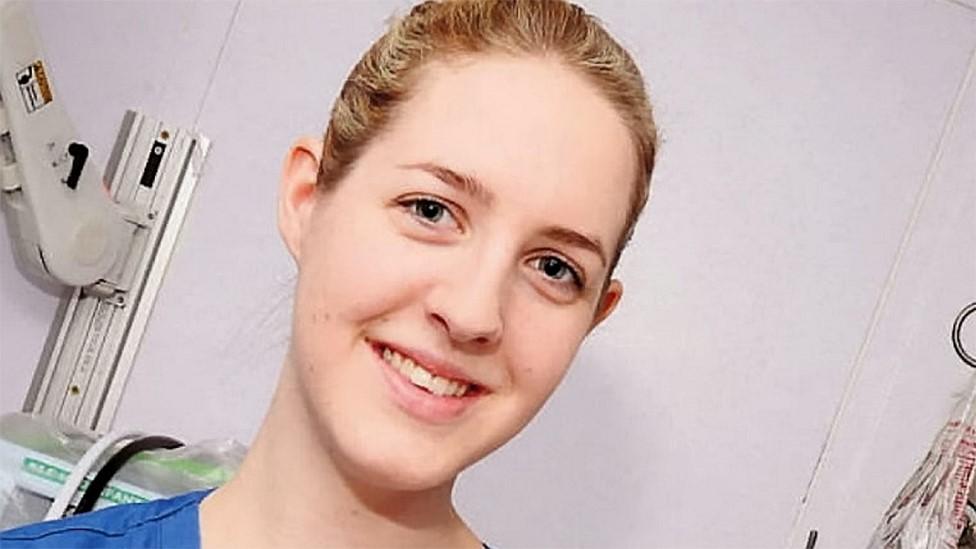
Lucy Letby has denied murdering and attempting to murder babies at the Countess of Chester Hospital
Nurse Lucy Letby has told a court it was a "huge unexpected shock" when a baby boy died shortly after she started her shift on a neonatal unit.
The newborn twin, known as Child A, died just over 24 hours after his birth at the Countess of Chester Hospital.
Giving evidence for the second day, Ms Letby, 33, said she felt like she had "walked through the door into this awful situation" on 8 June 2015.
Ms Letby denies murdering seven babies and attempting to kill 10 others.
The prosecution has alleged the nurse, originally of Hereford, was a "constant malevolent presence" at the hospital, killing five boys and two girls, and attempting to murder another five boys and five girls.
During the first six months of her trial, the prosecution has claimed that in 2015 and 2016, Ms Letby used various means to target the babies, including injecting them with air and poisoning them with insulin.
Under questioning from her lawyer Ben Myers KC, Ms Letby said she had received a text message in the morning on 8 June 2015, asking if she could work the overnight shift.
She told the jury she agreed, adding such requests happened "frequently" and she was "very flexible" and "very happy to help where I could".
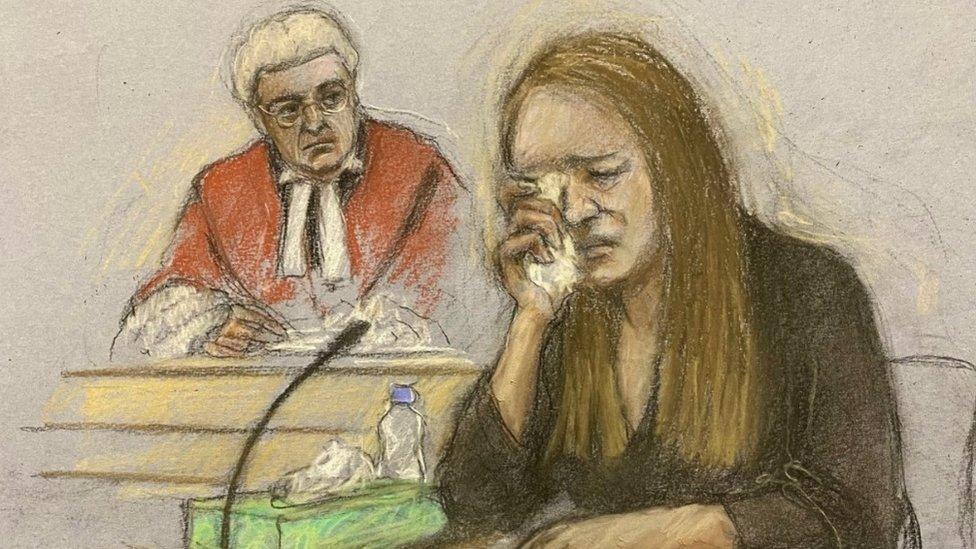
Lucy Letby wiped away tears as she gave evidence for the first time on Tuesday
The court heard she was given Child A to care for when she arrived on shift at 19:30 BST and she and fellow nurse Melanie Taylor went on to give the baby intravenous fluids.
Once the infusion had started, she had a nursing handover with Ms Taylor.
Once the handover had been completed, Ms Letby said Ms Taylor went to the computer station to start writing her notes while she started doing equipment checks.
The nurse said she recalled another doctor was also in the room at this time.
She said she noticed Child A had become "jittery" when she started doing her observations and that shortly after, his alarm monitor sounded and he had changed colour and was apnoeic.
She said she noticed his "hands and feet were white" so she started to use a mechanical device specially designed for neonatal resuscitation.
Ms Letby said "very soon after", an emergency crash call went out to the neonatal team and doctors arrived to assist with the resuscitation.
When asked how she was feeling at this time, Ms Letby said it was "a huge unexpected shock".
"It felt like I literally just walked through the door of the shift and this was happening," she said.
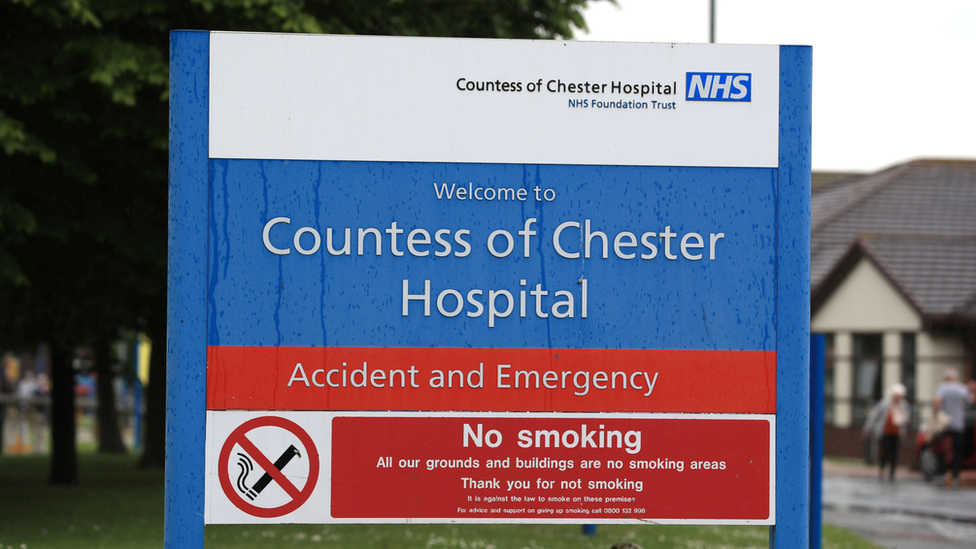
Neonatal nurse Lucy Letby worked at the Countess of Chester Hospital
Following Child A's death, the nurse assisted his parents and made a memory box.
She labelled the baby boy's umbilical venous catheter line and bag and stored them in the neonatal unit's sluice room after the infant's death as she felt it should be checked.
When asked again how she felt after the events, she said she was "stunned".
"It was a complete shock for all of us," she said.
"It felt like we'd walked through the door into this awful situation.
"It was the first time I met [Child A] and his parents… it was a huge shock."
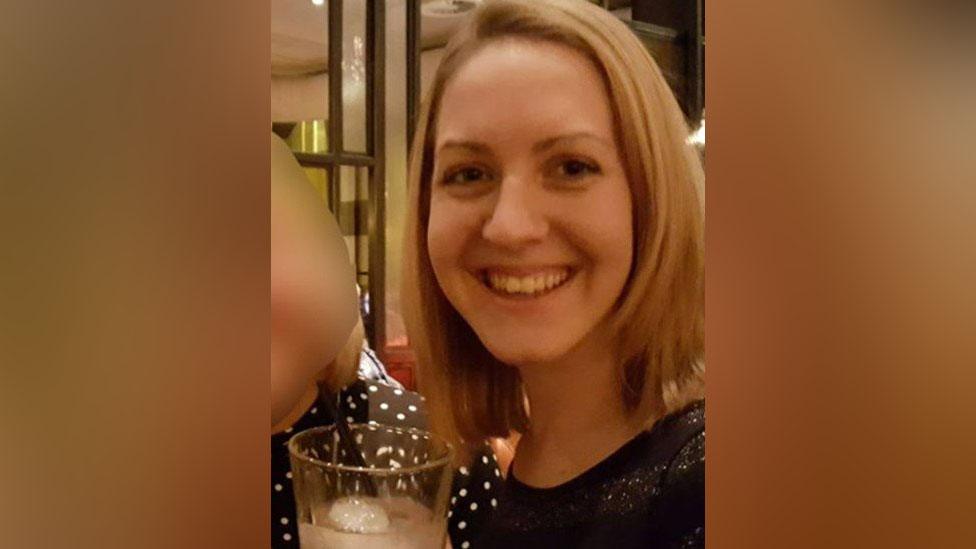
Lucy Letby, 33, denies all of the charges against her
Ms Letby was also asked about Child A's twin sister, Child B, who collapsed 28 hours after her brother's death.
The court has heard how Ms Letby, along with other medics, went to help after the girl's heart rate suddenly dropped.
A nurse who treated Child B previously told the court she "looked very like her brother did the night before".
Ms Letby told Mr Myers she did not "have much recollection" of what happened with Child B as she was designated other babies on that shift, but she recalled running a blood gas for Child B at about 00:15 on 10 June.
She said Child B would not have been on her own when this was done and another nurse, who cannot be named, would have asked her to assist as blood samples require two nurses.
At the time of the collapse, she said Child B's skin looked "mottled" and "dark" and "purple" in colour.
She said this was different to Child A, who was "pale and white".
Ms Letby said she went to get a camera, kept on the unit, to take a picture of Child B's skin change, which was standard practice with any sudden changes.
She said by the time she returned, Child B "had stabilised and her colour had returned to normal".
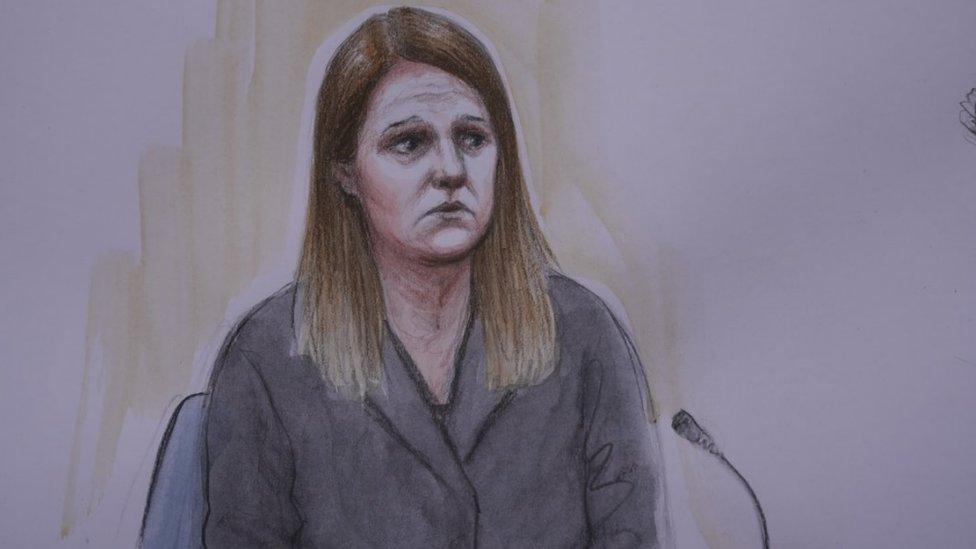
Lucy Letby is continuing to give evidence in the witness box at Manchester Crown Court
Questioning then moved on to Child C, who was allegedly murdered after Ms Letby inserted air into his stomach via a nasogastric tube.
Ms Letby said she had "very little independent memory" of the baby boy's collapse as she was the designated nurse for two other babies at the time.
She said she was called by Ms Taylor to assist with Child C, who was apnoeic, and helped take part in resuscitation attempts.
However, Sophie Ellis, the designated nurse for Child C, told police she heard the baby's monitor sound after briefly going to the nurses' station.
Ms Ellis said when she returned to nursery one, Ms Letby was standing next to the cot and told her: "He's just dropped his heart rate and saturations."
Ms Letby told jurors she did not recall saying that or remember when she entered nursery one, but her recollection was that she had been "called to help".
The court heard how another nurse, who cannot be named for legal reasons, also told police that she and Ms Letby were attending to another baby when they were both asked to assist with Child C.
When asked how the loss would impact Child C's parents, Ms Letby told the court it was "unimaginable".
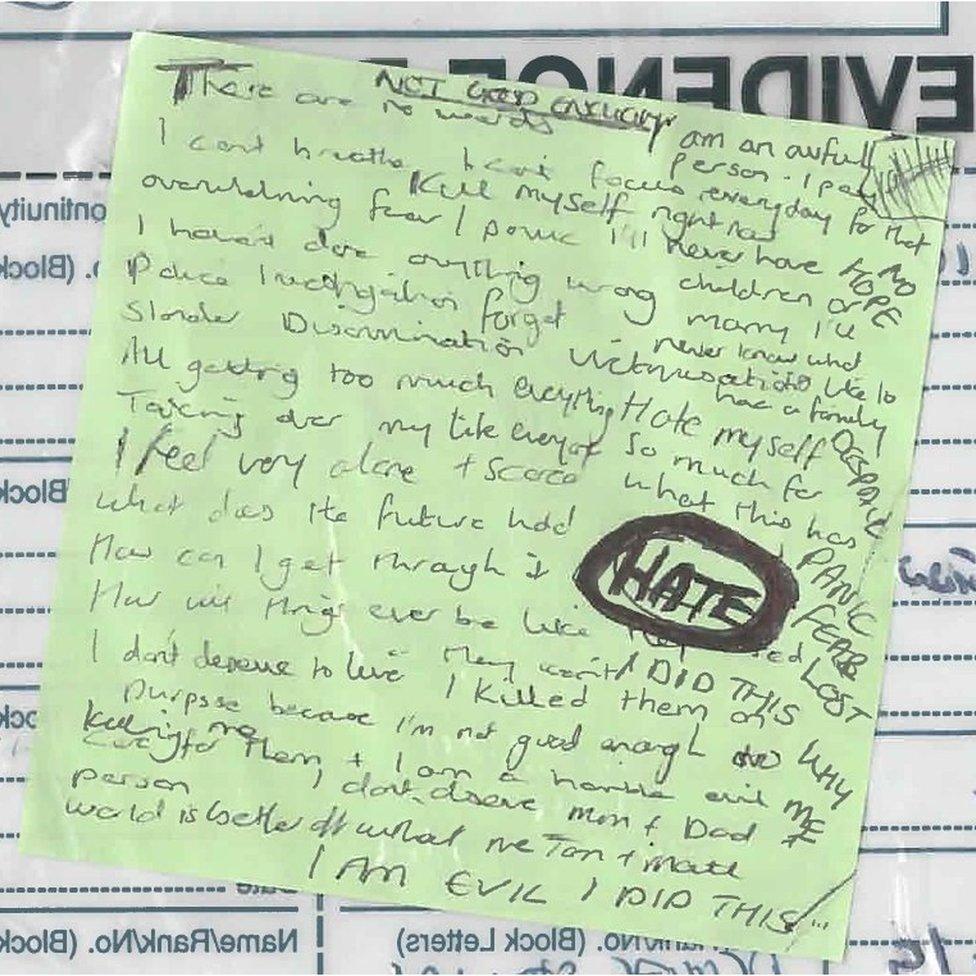
Notes found at the nurse's home were previously shown to the jury
Ms Letby was also questioned about Child D, who the prosecution have claimed the nurse murdered by intravenously administering air into her bloodstream in June 2015.
The court heard on 21 and 22 June, Child D collapsed several times, and despite resuscitation attempts, she was pronounced dead.
Ms Letby was caring for two other babies in nursery one on the night of 21 June.
Child D's mother previously told the jury she had seen Ms Letby in nursery one "hovering" with a clipboard at about 19:00.
Questioned about that, Ms Letby said she would not have been on the unit at that time.
The court heard door swipe data showed Ms Letby came through the entrance door at 19:26 that evening.
Ms Letby told the jury she did not have any memory of being called to assist with Child D at 01:30.
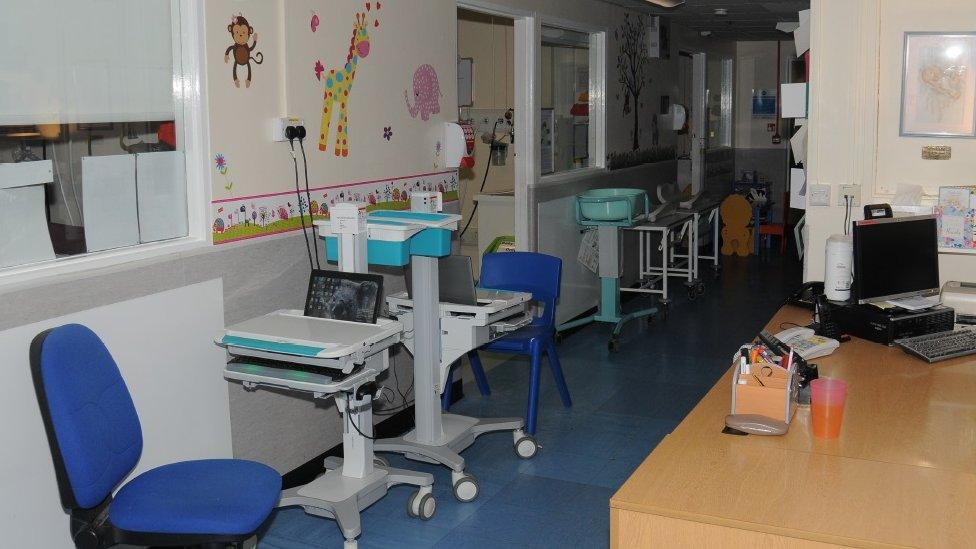
The nurse allegedly carried out the attacks on the hospital's neonatal unit
The nurse then broke down in tears as she recalled Child E's fatal collapse in July 2015 and how the baby boy was "bleeding from his mouth and nose".
It has been alleged that she murdered the infant by administering a fatal amount of air into his bloodstream and the court has previously heard he lost about 25% of his blood volume on the night.
The jury heard that during a police interview, an officer informed Ms Letby of a statement made by Child E's mother, who said she arrived on the unit to find her baby screaming and blood around his mouth at about 21:00.
In the interview, Ms Letby did not accept Child E was screaming or had blood around his mouth at that time.
The jury was told blood was later recorded in the medical notes at 22:00.
Ms Letby agreed that no other staff members had raised concerns about a bleed prior to 22:00.
She said she found his death "very traumatic", adding: "I've never seen a baby bleed in that way before."
Mr Myers asked if she had done anything to make it happen.
Through tears, she replied: "No."
The court has previously heard about Ms Letby's alleged attempt to kill Child E's twin brother, referred to as Child F, by intentionally administering insulin in the early hours of 5 August 2015.
Jurors heard his heart rate surged and his blood glucose levels dropped dangerously low after he received a new intravenous feed, which included nutrients and sugar.
Ms Letby, who was Child F's designated nurse in the days after the alleged attack, said she did not know why Child F had high insulin readings and had only "wanted him to be well" as she cared for him.
She added that she had "wanted him to be well enough to go home".
The trial resumes on Thursday.

Why not follow BBC North West on Facebook, external, Instagram, external and Twitter, external? You can also send story ideas to northwest.newsonline@bbc.co.uk, external
Related topics
- Published2 May 2023

- Published18 August 2023

- Published27 April 2023

- Published25 April 2023

- Published18 April 2023

- Published17 April 2023

- Published6 April 2023

- Published5 April 2023
